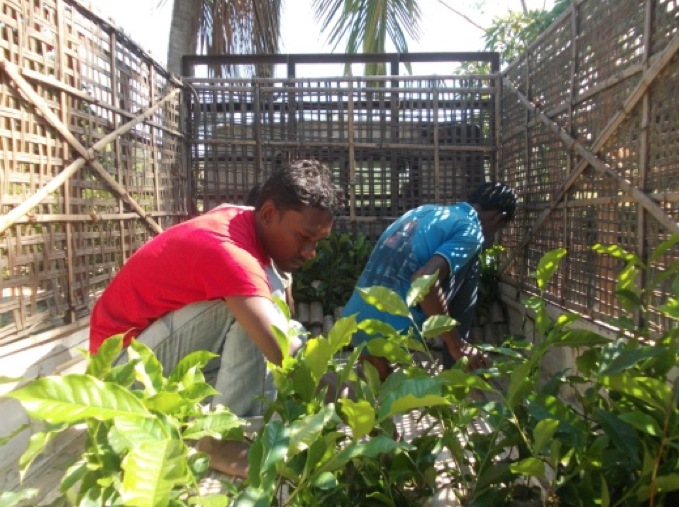INDIA: Bosco Tea Project Helps Families Develop Organic Tea Gardens, Gain Economic Security

(MissionNewsire) The Bosco Tea Project, funded by Anma Integrated Development Association (AIDA), the development wing of the Dimapur Province of the Salesians of Don Bosco, was developed in 2008 to help tea garden laborers in Assam, India, a state in northeastern India known for its wildlife, archeological sites and tea plantations. To date, the project has helped more than 700 families.
India is one of the largest tea producers in the world with close to 70 percent of its tea consumed within India itself. The Indian tea industry has grown to own many global tea brands and has evolved into one of the most technologically equipped tea industries in the world. The districts of Golaghat, Sibsagar, Dibrugarh and Tinsukia in the Indian state of Assam, in the northeastern region of the country, have a large number of tea estates.
The tea estates are tended to by laborers who despite working long hours, often do not make enough wages to meet their basic needs or escape poverty. Many tea laborers own their own small parcels of land but, for various reasons, leave the land uncultivated while they leave home to work at larger tea estates. In times of financial crisis, they are often forced to mortgage their land for small loans and when they are unable to repay the loans, the land is forfeited. Salesian missionaries in India, aware of this difficult situation, are working to provide opportunities for tea laborers to break the cycle of poverty.
“The goal of the Bosco Tea Project is to help tea laborers begin to cultivate their land, giving them an opportunity to become owners of their own small tea gardens and develop a long-term sustainable income,” says Father Mark Hyde, executive director of Salesian Missions, the U.S. development arm of the Salesians of Don Bosco. “Tea laborers are provided start-up assistance either through financial resources or through the donation of tea saplings, which helps them to develop their own business and gain financial security.”
Laborers are also taught business and technical skills relating to the tea market and, capitalizing on their years of working on larger tea estates, they are able to develop a sustainable income to help them escape poverty. Many former laborers have developed stronger self-confidence and a renewed sense of dignity through the project.
Recently the project has had a focus on developing family tea gardens that are organic and will not utilize any chemicals in their gardening management. Salesian missionaries have developed one vermin-compost as a sample tea garden as well as assisted four families with their own organic tea gardens. The garden located on the Salesian property will be utilized for training others on how to prepare vermin-compost manure and vitamins for plants.
Through donor funding provided to Salesian Missions for the project, three new families who began organic tea gardens were provided 2,000 saplings each and one family received 2,500. They each prepared a plot of land and then had the delivery of saplings, which were planted with the assistance of Bosco Tea Project staff. Salesian staff also directed them how to take care of the tea plants and the garden using organic methods. A new grass cutting machine was also purchased by the project, which is utilized by the families to help reduce the work load of families and keep them away from use of chemicals. This can save time and money in tea garden management. In addition, the Bosco Tea Project was also able to furnish a training hall that will be utilized for staff meetings, training the farmers and for meetings.
###
Sources:
UNICEF – India
Salesian Missions – India




